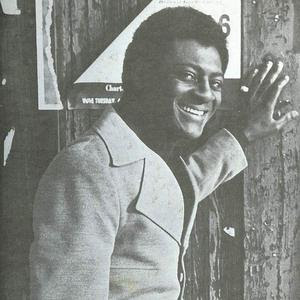
vendredi 31 décembre 2021
WELCOME IN 2022
samedi 25 décembre 2021
vendredi 24 décembre 2021
mercredi 22 décembre 2021
jeudi 16 décembre 2021
mercredi 15 décembre 2021
R&B singer supreme Joe Simon dies at at 78
He was one of the most unique voices of soul music in the 1960s and 70s and later became a minister and Gospel singer. But whatever he sang, there was no mistaking the rich baritone voice of the great Joe Simon. Today we sadly say goodbye to this all-timer who has died at age 78.
The Simmesport, Louisiana born Simon began singing in the church after his family moved to the Bay Area of California, and it was there that he made the transition to become one of the great soul music artists of his time.
Beginning with his release of “Teenager’s Prayer” when he was just 23, Simon recorded a string of R&B hits, many of which crossed over to the pop charts. 1969’s “The Chokin’ Kind” became an across-the-board smash and won for Simon a Grammy Award for Best Male R&B Performance.
As the 70s emerged, Simon teamed with up and coming songwriters/producers Kenny Gamble & Leon Huff (who would go on to form the iconic Philadelphia International Records) and landed back to back smashes in 1972 with the #1 “Drowning In the Sea of Love” and “Power of Love” (which was sampled in OutKast’s “So Fresh, So Clean”). And after a series of powerful ballads and midtempo songs, Simon took the tempo up and hit #1 again with the pre-disco dance smash “Get Down, Get Down” in 1975.
By the 1980s, Simon began devoting his life and his music to his faith, and he became a minister and Gospel singer. That continued for the rest of his long life. He recorded sporadically, but issued the nice single as Bishop Joe Simon, “Lord They Said I Wasn’t Gonna Be Nothin” in 2016, the same year he released a documentary on his life.
For many R&B fans, Joe Simon is a name that will always be associated with the Golden Age of Soul Music, and he certainly was that. There were few artists who possessed that kind of instantly recognizable powerful voice, and his music and his decades of work of ministry will be remembered long after today’s unhappy news. Rest in peace, Bishop Joe Simon.
mardi 14 décembre 2021
samedi 11 décembre 2021
vendredi 10 décembre 2021
jeudi 9 décembre 2021
New Releases
Kenny Lattimore - Here to Stay (Dec. 3)
Melanie Hunter - Give It Up (December 9)
Naughty By Nature - Naughty By Nature (Vinyl Release) (December 10)
Marvin Gaye - What's Going On 50th Anniversary (January 28)
St. Paul & the Broken Bones - The Alien Coast (January 28)
MF Robots - Break the Wall (January 28)
Amber Mark - Three Dimensions Deep (January 28)
The Temptations - Temptations 60 (January 28)
Motown: A Symphony of Soul (February 18)
Aretha Franklin - Her Ultimate Collection
Ayo - Royal
Earth Wind & Fire - Their Ultimate Collection
Stone Paxton - Kunlalini Awakening
Al Green - Al Green's Greatest Hits
Jaki Graham - 35th Anniversary Collection
Mary Wilson - The Motown Anthology
Tuxedo - Doin' My Best
Average White Band - Shine + 9
R.I.P. Ralph Tavares, leader of the group Tavares
(December 9, 2021) The past two years have been particularly difficult for soul music fans, as so many of the genre's greatest artists have passed on. But this one cuts deeper than the rest for me. Ralph Tavares, the eldest member and longtime leader of the family group Tavares, has died just two days before his 80th birthday.
Ralph was my first interview ever, as a young music reviewer. I was 18 years old and writing for a small college newspaper, and he kindly agreed to meet with me – at the peak of Tavares’ popularity -- at his hotel before a concert in Detroit. He was incredibly gracious to a novice writer, and even took me backstage before the show to meet with his brothers. It began a friendship that continued throughout my college years, and he never hesitated to talk with me honestly about his career or the music business. Our regular calls led to the surprising conversation in 1983, when he told me he was going to leave the group to spend more time with his young family. But more about that in a minute.
Originally called "Chubby and the Turnpikes," the Tavares brothers spent the late '60s and early '70s in their native New England covering tunes of R&B greats at various clubs, while trying to land a record deal. They finally scored a contract with Capitol Records' then-new black music division and released their first single, "Check It Out," in 1973. It soared to the top 10 on the R&B charts and became the group's first top 40 pop hit. It also became the centerpiece for the their Johnny Bristol-produced debut album, an excellent example of early '70s Soul that also featured the hit "The Sound That Lonely Makes." The Check It Out LP gave the first glimpse of tight brotherly harmonies and alternating lead vocals that would become the Tavares trademark sound.
Capitol teamed the group next with Dennis Lambert and Brian Potter, hot producers/writers who were coming off the hugely successful Keeper of the Castle album for the Four Tops. They led Tavares through two successful LP, and the group's first #1 R&B hit (a cover of Hall & Oates' "She's Gone") and first top 10 pop hit ("It Only Takes A Minute"). Tavares was on a roll.
If their first three albums set the Tavares brothers up for success, the fourth, Sky High, (produced by Motown veteran writer/producer Freddie Perren) and its international hits, "Heaven Must Be Missing An Angel" and "Don't Take Away the Music," led the group to the "A" list of popular black artists. Perren moved the group to a hotter, crisper beat-heavy sound not hinted at in Tavares' earlier releases and the timing couldn't have been better, as the disco boom was about to explode. Tavares’ emerging popularity in the dance community led to an unexpected pivotal moment in 1977: the group's cover of the Bee Gees' "More Than A Woman" was included on the Saturday Night Fever soundtrack, giving the act its greatest exposure ever (as well as its only Grammy award), but bringing with it a label that Tavares would spend years trying to shake - that of "Disco Group."
The brothers spent the next several years working with a who's who of emerging producers, from David Foster to Kashif to Benjamin Wright, broadening their sound and confounding critics who levied the “disco” label. The group hit the charts several more times with varied styles of songs before changes in the music industry and the normal arc of a career took their toll. By 1983, Tavares’ recording years ended, though the group scored one last Grammy nomination for the ballad, “Penny For Your Thoughts.”
--------------------------------------------------------------------------------------------------------------------
































